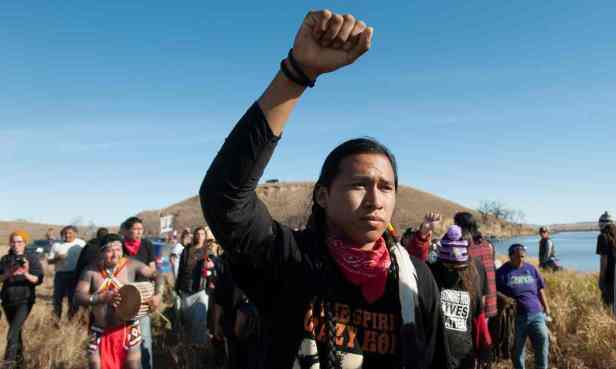 Protesters at the Standing Rock reservation in North Dakota, where people have been camping since April in defiance of the oil pipeline project. Photograph: Stephanie Keith/Reuters
Protesters at the Standing Rock reservation in North Dakota, where people have been camping since April in defiance of the oil pipeline project. Photograph: Stephanie Keith/Reuters
Activists call themselves “water protectors” and argue that the pipeline poses similar threats to the now defeated Keystone XL, but lament that DAPL has failed to garner the same amount of national attention. Tribal leaders also say that the US army corps of engineers’ initial decision to allow the pipeline to run within a half-mile of the local reservation was done without consulting tribal governments and without a thorough study of impacts.
This means, the tribe says, that the project violates federal law and native treaties with the US government.
Where are the protests taking place?
The first protest camp emerged in April when members of the Standing Rock Lakota and other Native American nations rode on horseback and established a spiritual camp called Sacred Stone.
